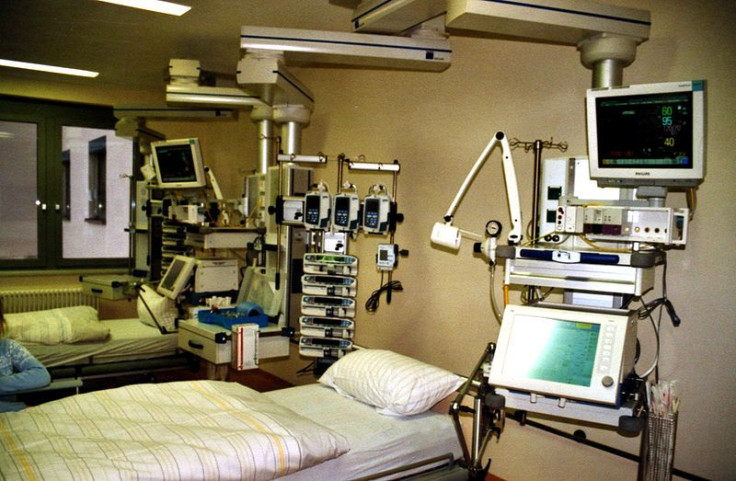Insurance Company Denies Coverage For Terminal ALS Patient's Care, Claiming Services Are 'Medically Unnecessary'

Last September, Gail Kennet's insurance provider stopped paying for her respiratory aid, claiming that her condition is not acute enough to warrant the critical care she currently receives at Maine Medical Center. Yet Kennet, who suffers from ALS, simply cannot breathe on her own. The Maine Sunday Telegram reports that the terminally ill Maine woman and her husband of 46 years are now faced with a rapidly growing, out-of-pocket medical bill that recently passed seven figures.
Kennet, who's in the final stages of amyotrophic lateral sclerosis (ALS) commonly known as Lou Gehrig's disease, has been a patient at Maine Medical Center's critical-care unit since February 2012. Her life is sustained by a mechanical ventilation system that helps her breathe and cough.
"She remains completely dependent on mechanical ventilation to sustain her life," Dr. Stephen Mette, chief of the critical care unit, wrote in an update last month. "There are no attempts to wean her from mechanical ventilation and indeed she would not survive this given that she has essentially no respiratory muscle strength.
"She no longer has any motor function of her arms and hands. She uses a nurse call device triggered by small movement of her head. Communication has become more difficult over the past month. The care team now uses a system of eye deflection for yes or no answers only."
But in the eyes of Anthem Blue Cross and Blue Shield, none of these services are "medically necessary," and the company is no longer covering Kennet's care, which costs $3,300 each day.
The insurance company contends that the care is within the purview of non-specialized, custodial care, and the critical care she currently receives is simply unnecessary.
Unfortunately, out of the 39 skilled nursing facilities the family has contacted thus far, not one has deemed themselves equipped to handle such complex care.
"They [Anthem] say she appears ready for a lower level of care, but don't say when or where," Gail's husband, John, wrote in a plea for help to the Maine Education Association Benefits Trust. "Maine offers no such facilities for patients on ventilators and there is no place for her to go. There was no expression of sympathy or offer to provide help on the part of Anthem. As a Maine company servicing Maine people, I would have expected more."
Although the legally required external review admits that this poses a problem, it nonetheless upholds the insurance company's decision to withhold coverage.
"The lack of a SNF [skilled nursing facility] ventilator unit within reasonable proximity to the patient's home, and the apparent inability to arrange home mechanical ventilation is problematic," Dr. James Lamprakos of IMX Medical Management Services wrote in the review. Nonetheless, the denial of inpatient care ... to a stable patient with ALS on mechanical ventilation is upheld."
ALS, which is commonly referred to as Lou Gehrig's disease, is a progressive neurodegenerative disease that affects the patient's motor neurons. As the disease progresses, patients with ALS lose their ability to swallow and breathe, which could be the ultimate cause of death. Approximately 5,600 Americans receive the terminal diagnosis each year. Following the diagnosis, only 20 percent live for five years or more.
Published by Medicaldaily.com



























